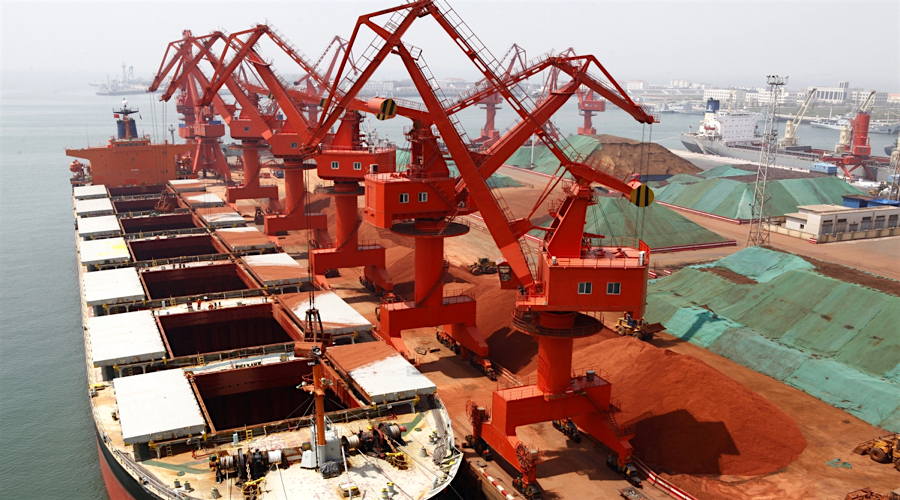China iron ore retreats as Vale looks to rebuild capacity

Dalian iron ore pulled back on Monday from last week’s record-peak, as market participants shrugged off a further decline in inventory of the steelmaking raw material at China’s ports and focused instead on the outlook for shipments from Brazil.
Top iron ore miner Vale SA expects to soon restore 20 million tonnes of yearly capacity at its Brucutu mine in Brazil, according to analysts who attended a recent meeting with company executives.
Safety concerns following a mine tailings dam collapse in January prompted closures of some of Vale’s mines, reducing supply to top buyer China, which makes about half of the world’s steel.
Vale needs court approval to resume production at Brucutu, which is operating at only a third of its 30 million tonnes yearly capacity.
“Our indicators continue to point towards a steady increase in forward supply, as well as higher arrivals into China”
Hui Heng Tan, Marex Spectron research analyst
The most-actively traded iron ore contract on the Dalian Commodity Exchange (DCE), for September delivery, ended the session 2.4% lower at 768.5 yuan ($110.98) a tonne. It fell 3.4% earlier in the session.
Another 30 million tonnes of capacity could be restored in the second half of the year once Vale’s Alegria, Vargem Grande and Timbopeba mines receive dry processing licences, according to analysts at brokerage XP Investimentos.
Brokerage Marex Spectron expects iron ore supply conditions to ease at Chinese ports, although the latest data from SteelHome consultancy showed the port inventory shrank further to 118.7 million tonnes, as of last week.
That is the lowest in about 2-1/2 years.
“Our indicators continue to point towards a steady increase in forward supply, as well as higher arrivals into China,” said Hui Heng Tan, a Marex Spectron research analyst.
While iron ore prices are likely to remain supported by demand, as some analysts expect China’s steel output to remain strong, the high raw material cost is also seen slowing purchases by steel mills already hit by shrinking margins.
Spot ore with 62% iron content for delivery to China was at $111 a tonne as of Friday, a five-year high, according to SteelHome consultancy.
Helen Lau, a metals and mining analyst at Argonaut Securities, said “steel profitability is still high enough for steel companies to (continue) production expansion, hence demand for iron ore will be supported”.
“Supply of iron ore will gradually recover, but we can worry about it later,” she said.
Following a sustained rally last week that brought the September iron ore contract to a record 797.5 yuan a tonne, the DCE said on Friday that it would raise trading limits and margins for the benchmark, effective from June 18.
Trading limits will increase to 8% from the current 6%, while trading margins will rise to 10% from 8%.
Other steelmaking raw materials were also lower, with coking coal down 0.9% at 1,383.5 yuan a tonne. Coke slipped 2.9% to 2,064.5 yuan.
Steel futures dipped as well, with the most-actively traded construction steel rebar, for delivery in October, on the Shanghai Futures Exchange down 2.1% at 3,704 yuan a tonne.
Hot-rolled coil, steel used in cars and home appliances, dropped 1.5% to 3,585 yuan a tonne.
($1 = 6.9245 yuan)
(By Enrico dela Cruz; Editing by Joseph Radford and Sherry Jacob-Phillips)
{{ commodity.name }}
{{ post.title }}
{{ post.date }}




Comments